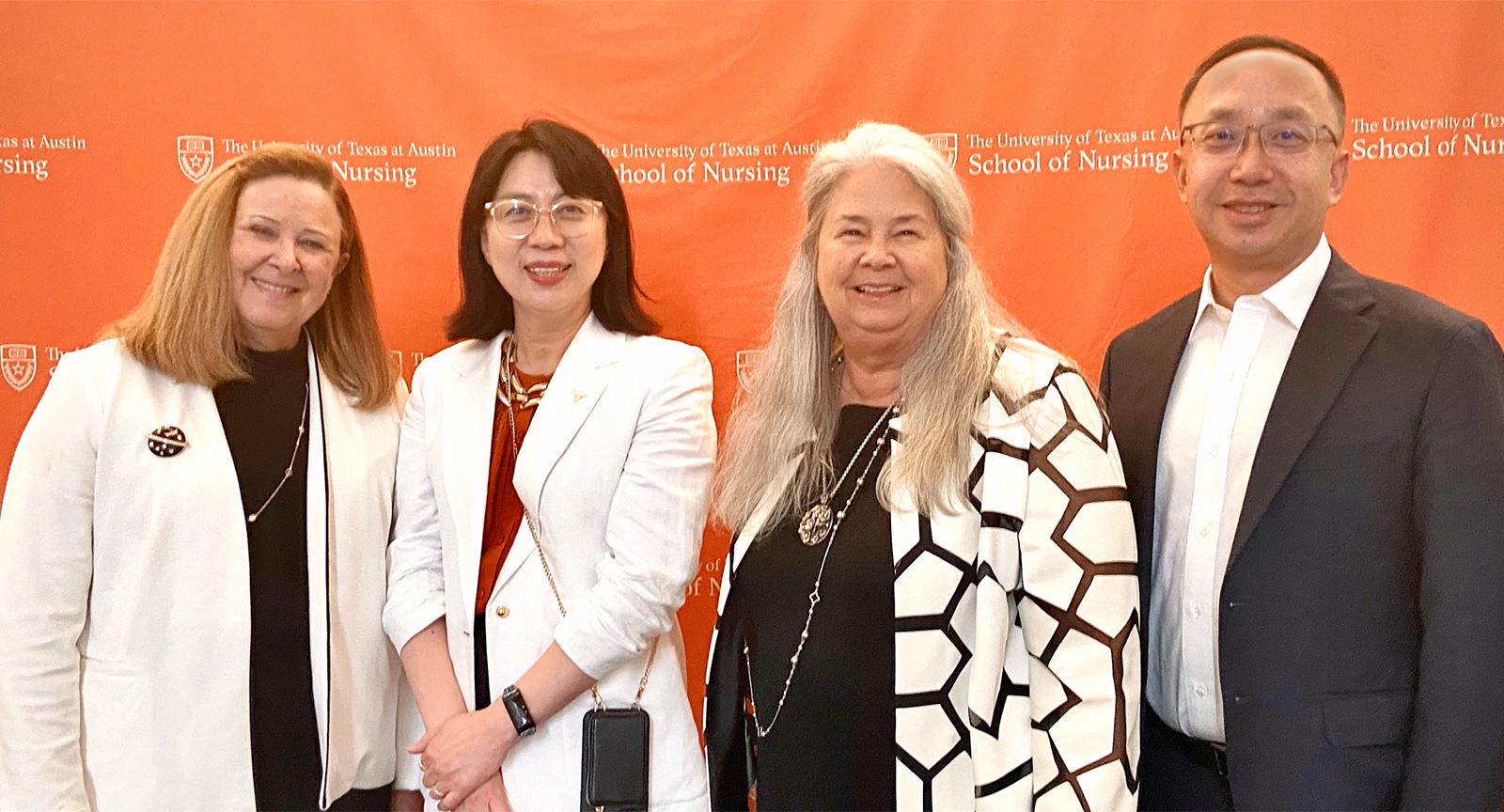
The University of Texas at Austin School of Nursing hosted its first-ever endowed lectureship symposium on Sept. 13, 2024. This half-day hybrid event offered insights into advancements in rural health care, oncology, perinatology and integrative medicine from distinguished leaders in health care research and education.
Two LaVerne Gallman Lectures in Nursing were presented separately by Jun J. Mao, MD, MSCE and Shelli Kesler, PhD, The Jack and Laura Lee Blanton Lecture in Nursing was given by Elizabeth Merwin, PhD, RN, FAAN, and The George and Diana Sharpe Perinatal Lecture was presented by Rita Pickler, PhD, RN, FAAN.
"The symposium exemplifies our commitment to advancing nursing education, research and practice,” said UT Austin School of Nursing Dean Eun-Ok Im, PhD, MPH, RN, CNS, FAAN. “This event brings together distinguished leaders and innovators who are shaping the future of health care, and it offers an invaluable opportunity for our students, faculty and the broader community to engage in meaningful dialogue. We are proud to host an event that not only honors the legacy of those who have supported our School but also inspires the next generation of nursing professionals."
Integrative Oncology
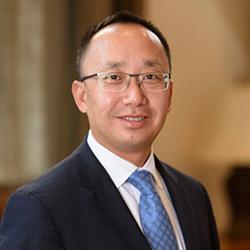
Dr. Jun J. Mao is the chief of integrative medicine at Memorial Sloan Kettering Cancer Center and holds the Laurance S. Rockefeller Chair in Integrative Medicine. He is also a professor at Weill Cornell Medical College. Mao is a board-certified family physician and licensed acupuncturist who integrates Western and Eastern approaches to treat pain and symptoms in cancer patients.
His research focuses on complementary and integrative medicine for cancer symptom management. He has received funding from major institutions like the NIH and has published over 250 peer-reviewed articles. Mao's work has significantly advanced the use of acupuncture in cancer care. He has led organizations like the Society for Integrative Oncology and the Society for Acupuncture Research.
Mao’s lecture titled “Integrative Oncology: Evidence-based Medicine Meets Patient-Centered Care” presented the definition of integrative oncology and key therapeutic approaches, discussed the use of rigorous research to increase the evidence base for integrative oncology and discussed the application of integrative oncology practices in patient-centered care.
Rural Health Outcomes
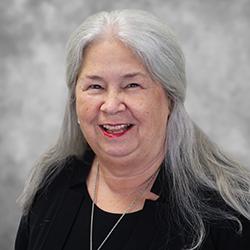
Dr. Elizabeth Merwin is the Dean of the College of Nursing and Health Innovation at the University of Texas at Arlington and the founding executive director of its Center for Rural Health and Nursing. Prior to this, she was a professor and executive vice-dean at Duke University School of Nursing from 2012-2019.
Merwin has over 30 years of experience in nursing leadership and health services research, focusing on improving health outcomes for underserved populations, particularly in rural and mental health settings. Her research has received consistent funding from the NIH and other agencies. She has held key roles at the University of Virginia and Duke, including leadership in rural health care research and expertise in large data analysis.
Merwin's presentation, "Closing the Gap: Improved Rural Health Outcomes," focused on several key areas, including understanding concepts and a framework for factors influencing rural health outcomes; identifying three barriers and three solutions to improve rural healthcare access; highlighting three methodological challenges in rural health research and strategies to address them; discussing innovative initiatives to tackle rural health workforce shortages and improve outcomes, and offering two strategies for integrating rural health into ongoing research programs.
Perinatal and Neonatal Research
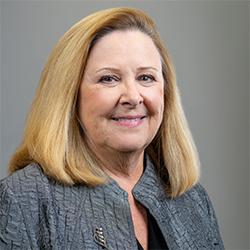
Dr. Rita Pickler is The FloAnn Sours Easton Professor of Child and Adolescent Health at The Ohio State University College of Nursing. With over 30 years of experience, her work focuses on the care of preterm infants, reducing prematurity, and improving maternal and child outcomes. She has been continuously funded by the NIH since 2001 for interdisciplinary research, including randomized trials aimed at improving neurobehavioral outcomes in infants.
She has published over 180 works and served on multiple NIH research committees. Pickler has received numerous honors, including induction into the American Academy of Nursing, the Sigma Theta Tau International Researcher Hall of Fame, and two lifetime achievement awards. In 2022, she was named a University Distinguished Scholar at Ohio State. She has been the current editor of Nursing Research, since 2018.
Pickler delivered a lecture titled “Evolution to Revolution in Perinatal and Neonatal Research,” where she offered an overview of the field’s history. She highlighted her 40-year research program centered on high-risk mothers, infants and families, and addressed key challenges and emerging priorities in perinatal and neonatal research and care for the future.
Brain Aging After Cancer
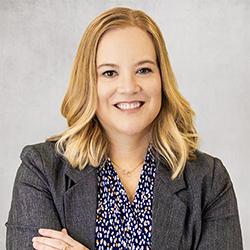
Dr. Shelli Kesler is the Dr. Mary Louise Adams Endowed Professor in Oncology Nursing and director for the Center for Advanced Research Methods at the UT Austin School of Nursing.
She is a cognitive neuroscientist with expertise in neuroimaging, neuropsychology, biostatistics, machine learning and computer programming. The focus of her research concerns the effects of cancer and its treatments on brain network (connectome) organization. Kesler aims to improve precision health management of cognitive toxicities in patients with non-CNS cancer through connectome-based subtyping and prognosis of cognitive dysfunction. She also examines the relationships between the connectome, cognition and survival in patients with CNS cancer. She has obtained over $14 million in external grant funding including four National Institutes of Health R01's and the prestigious National Institutes of Health Director's New Innovator Award.
Kesler’s lecture titled “Accelerated Brain Aging after Cancer” covered cancer, aging and brain health, explaining how the brain ages over time due to chemotherapy treatment, the areas of the brain it affects, her research related to connectome, as well as how to help patients and improve brain function.
Research with Relevance
Susan Kane Patton, PhD, CNS, MHA, RN, a professor emeritus of nursing at the Eleanor Mann School of Nursing at the University of Arkansas, likes to stay involved in nursing and nursing research. She was drawn to the symposium because of the quality of the speakers and the topics they were presenting.
“I think it was very inspiring in terms of the research they talked about, and it gave me a lot of ideas for research and things I can share with students as a nursing faculty,” Patton said. “They’ve done research that matters and makes a difference in people’s lives.”
Patton also appreciated how there was a hybrid option, as she could share with some of her colleagues in Arkansas, who were able to participate virtually.
School of Nursing PhD student Merci Paulhill, BSN ’22, said she gains a better understanding of what it means to be a nurse because of symposiums like this.
“There are legends in this room who have taken the time to share with us the research they’re doing and are helping us understand the past for us to help the future of nursing,” Paulhill said.